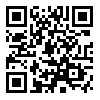2- Kharazmi University
3- University of Tehran
This study examined the role of self-efficacy, math attitude math anxiety, and previous math achievement in math achievement by using path analysis. The sample consisted of 366 third grade guidance school students. Fennema’s Math Attitudes Scale, Shokrani’s Math Anxiety, a combind test of two Scale of Pajares’s Math Selfefficacy, math scores of last year, and final math scores of students were used to measure variables. The results showed that previous math achievement and math selfefficacy
had the greatest effects on math achievement respectively. The study provided evidence for the mediator role of Math self-efficacy, that is, math attitude affected math achievement through its impact on the beliefs of math self-efficacy. The mediator role of math anxiety was also confirmed: math self-efficacy and math attitude affected math achievement through their impact on math anxiety. Apart from its large direct effect on math achievement, previous math achievement had an indirect effect on math achievement through its impact on math attitude, math selfefficacy, and math anxiety. Math attitude also had a direct effect on math anxiety. By comparing different effects of math attitude on math achievement, it was indicated that
math attitude affected math achievement indirectly through its impact on mediational variables such as math selfefficacy,
and math anxiety.
attitude, Math anxiety, Previous math achievement
Received: 2016/05/25 | Accepted: 2016/05/25 | Published: 2016/05/25
| Rights and permissions | |
 |
This work is licensed under a Creative Commons Attribution-NonCommercial 4.0 International License. |



